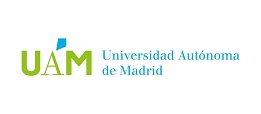|
|
||

|
Video Processing and Understanding Lab
Universidad Autónoma de Madrid, Escuela Politécnica Superior |

|
SI1/PJI/2019-00414
AISEEME (2020-2022)
Aiding diagnosis by self-supervised deep
learning from unlabeled medical imaging
|
News
Project proposal overview
Deep learning solutions based on Convolutional Neural Networks (CNNs) have changed the paradigm in artificial vision analysis. These solutions yield close-to-human accuracy for challenging vision tasks by leveraging on large hand-annotated datasets to train the CNNs. However, the labeling of these datasets is a heavy burden and scarce and expensive expertise is required for high-quality annotation of some domains as medical imaging. Self-supervised learning (SSL) has proven to be a successful strategy to cope with this problem. In SSL a pretext task (e.g. solving jigsaw puzzles made from the permutation of image patches, which does not require human-annotation) is used to train high-level visual representations inside the CNN, that are useful for solving standard vision tasks by re-training the CNN with less human-annotated data. The use of multi-task frameworks to jointly train several pretext tasks consistently improves the performance over the use of a single pretext task. However, the joint optimization of distinct pretext tasks usually heads to inter-task interference: easily learned tasks may dominate the training process, hindering the learning of more complex tasks, and hence, of the high-level features required to solve them.
This project aims at defining pretext tasks orderings or curricula, by advancing on research results on curriculum learning and self-paced learning, two learning regimes that have proven to improve deep learning. The main objective of this project is to advance in the state-of-the-art of SSL schemes for vision by incorporating a precedence concept in the learning of multiple pretext tasks, while assessing its benefits in practical applications that particularly benefit from this approach, such as medical imaging. Specifically, we will focus on the design, development and extensive evaluation of novel schemes for skin lesion and lung nodule malignancy assessment, to engage potential medical partners, paving the road towards other future research projects.
Last update 05/01/2022